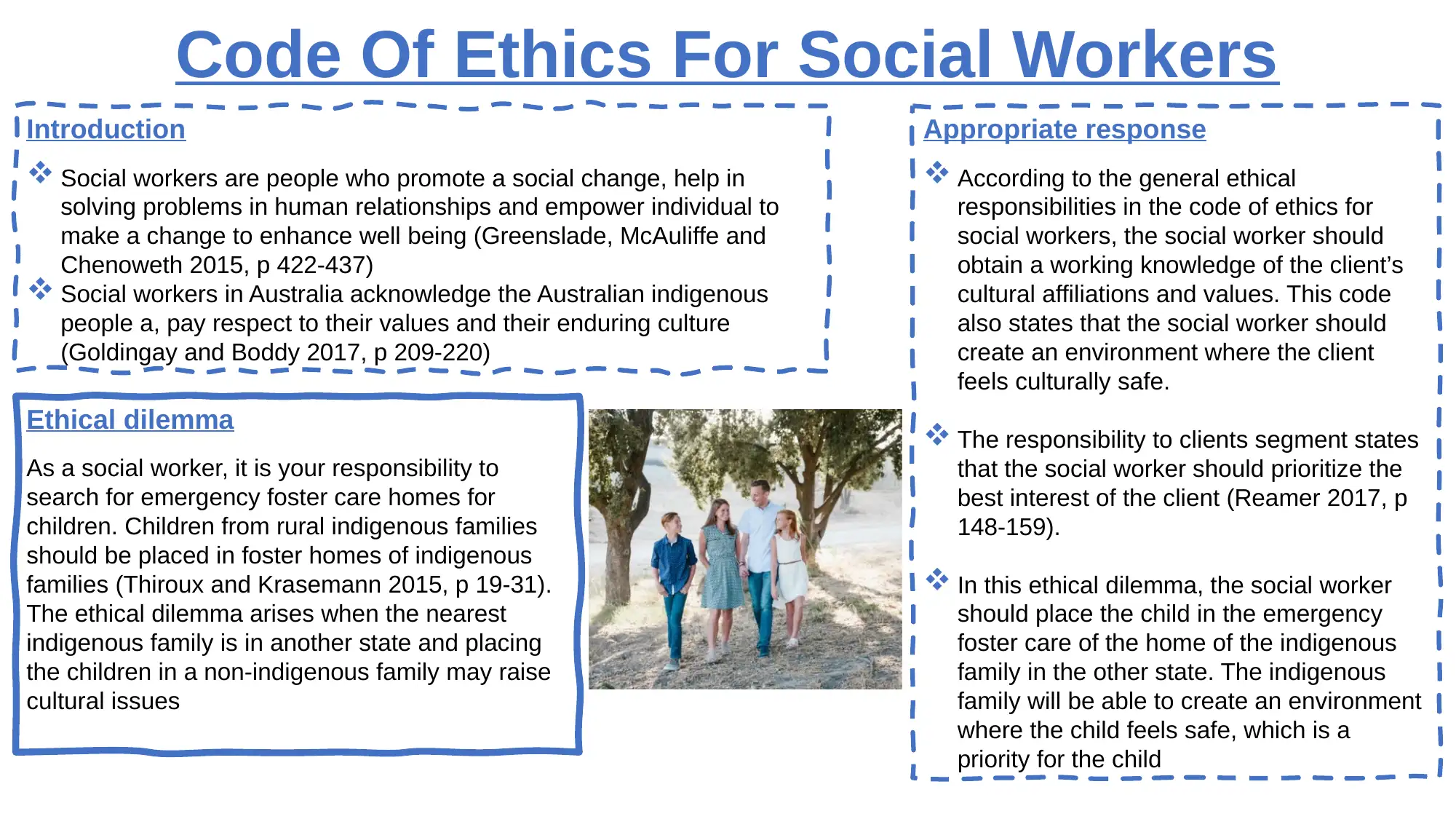Ethical Considerations in Social Work: Foster Care Placement Analysis
VerifiedAdded on 2022/10/15
|2
|399
|53
Report
AI Summary
This report examines an ethical dilemma faced by a social worker concerning the placement of indigenous children in foster care. The scenario presents a conflict between placing children in the nearest available foster home versus prioritizing placement within an indigenous family to maintain cultural connections. The report references the code of ethics for social workers, emphasizing the importance of cultural sensitivity, client well-being, and the creation of a culturally safe environment. The analysis suggests placing the child in an indigenous family, even if it requires placement in another state, to best serve the child's needs and adhere to ethical guidelines. The report references academic sources to support its arguments and provides a clear framework for ethical decision-making in similar situations.
1 out of 2


![[object Object]](/_next/static/media/star-bottom.7253800d.svg)